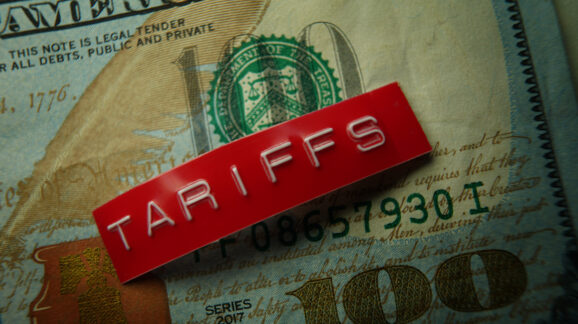Tariffs are taxes and must be legislatively accountable

Photo Credit: Getty
The Federal Circuit Court of Appeals has delivered a decisive rebuke to the new presidential reciprocal and trafficking tariffs. It ruled that a president cannot use the International Emergency Economic Powers Act (IEEPA) as a convenient legal fig leaf to reshape trade policy without the approval of Congress. The court’s decision reaffirms statutory limits and separation-of-powers principles through the major questions doctrine.
IEEPA was enacted in 1977 to give presidents authority to respond to genuine foreign emergencies, such as embargoes or national security threats, not to advance a president’s trade priorities. The statute was never intended to be a catch-all instrument for crafting tariffs or for exercising broad economic authority, and the statute does not mention tariffs or duties. Congress has long reserved the power to levy tariffs, a power explicitly granted to Congress by the Constitution. That power has historically been exercised by Congress because it affects the entire nation and must therefore be accountable to the people through their elected representatives.
Yet, President Trump has sought to wield IEEPA in ways that exceed its original scope. By attempting to impose or adjust tariffs unilaterally under the guise of “regulation,” the president effectively bypassed Congress and rewrote his statutory limits. Additionally, the tariffs did not “deal with” the claimed emergency of fentanyl border crossing as required by statute, meaning that a law designed to stop crises has been stretched into a tool of ongoing policy.
The Federal Circuit’s opinion makes it unmistakably clear that IEEPA does not authorize unlimited tariffs at the president’s direction. The courts cannot countenance that kind of legislative rewriting, and the Federal Circuit rightly refused to do so.
Allowing the president to impose tariffs unilaterally causes real and immediate harm to the economy. Tariffs are effectively taxes on consumers, raising prices on everyday goods and straining household budgets. That authority in the hands of one man creates uncertainty for businesses, complicating supply chains and investment decisions. When the executive branch assumes the ability to impose these taxes without congressional approval, it is exercising enormous power over the economy; power that is, by constitutional design, meant to reside with the legislature. The Federal Circuit’s decision restores democratic accountability, ensuring that any tariff increases must be debated openly in Congress, where elected representatives can weigh the economic costs and benefits and answer to the public for their decisions.
The ruling also addresses a broader pattern in modern governance: the tendency of presidents to invoke emergency statutes to pursue long-term policy goals. Whether justified by real or imagined crises, this approach undermines the rule of law and the separation of powers. Trade and tariff policy should not be subject to the whims of any single individual, no matter how well-intentioned. It must be made through the deliberation, negotiation, and oversight of Congress. By curbing the executive branch’s ability to convert emergency powers into a permanent policy tool, the court has reinforced the accountability mechanisms that keep American governance in balance.
Businesses and consumers can now plan, invest, and operate with confidence, knowing that taxes imposed through tariffs will be subject to legislative debate and public scrutiny. This certainty is essential for economic growth, especially in a global economy where supply chains are intricate and highly sensitive to cost fluctuations.
Such economic certainty is only possible when the executive branch itself is bound by law. Executive overreach threatens not only constitutional norms, but also economic stability and national financial well-being. By holding the executive branch to the boundaries of statutory authority granted by Congress, the court has protected both the constitutional structure and the economic liberty of millions of Americans. Emergencies, no matter how urgent they may seem, cannot serve as pretexts for executive lawmaking.
While the Federal Circuit ruled against the Trump administration, it put that decision on hold until October 14 to allow the government a chance to seek review before the Supreme Court. Even if the Supreme Court reviews this decision, it should reach the same conclusion. The government has asked the Supreme Court to take the case on an expedited basis.
In short, the ruling is a victory for both the separation of powers and the principle of accountable governance. Executive branch authority has limits, statutes must be applied as written, and Congress, not the president, holds the power to impose tariffs. By reaffirming the role of Congress, the Federal Circuit has preserved not just the law, but the liberty and economic security of the American people.